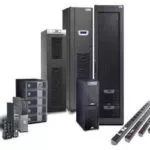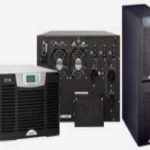 UPS (Uninterruptible Power Supplies) system plays a significant role in any business or facility where power availability is critical. UPS system offers graceful shutdown of machines/electronics as well as providing backup power in case of a power outage. The role of UPS in the industrial use is to help prevent data loss, damages to the hardware and avoid inconveniences that result for power outages. It is a known fact that energy costs have tremendously multiplied in the last few years and power shortages are on the rise, as a result of which effective use of energy has become a primary cause of concern for a great majority of end-users.
UPS (Uninterruptible Power Supplies) system plays a significant role in any business or facility where power availability is critical. UPS system offers graceful shutdown of machines/electronics as well as providing backup power in case of a power outage. The role of UPS in the industrial use is to help prevent data loss, damages to the hardware and avoid inconveniences that result for power outages. It is a known fact that energy costs have tremendously multiplied in the last few years and power shortages are on the rise, as a result of which effective use of energy has become a primary cause of concern for a great majority of end-users.
Today, industrial UPS systems have become the new industrial mantra. Energy efficiency can be considerably maximized by using modular and scalable UPS systems. At present, industrial players are the heaviest consumers of power and therefore, the problem of energy efficiency is of core concern to them. As a result, UPS manufacturers are constantly doing research and development work in the field to make the design, software, components and energy storage solutions compatible in such a way as to minimize the losses.
The advantages of using industrial UPS systems are quite simple as it is possible to cater to the power needs, and power loads, of a specific company. Many large businesses, especially the ones in the simulation worlds, want a power system that not only isolates and cleans facility power, but that also controls and monitors power used by the simulator to extend the life of the simulation hardware.
However, savings from energy efficient UPS systems only form a relatively small part of the total business energy consumption. One of the preferred methods to decrease power consumption is to make use of an optimized IT architecture and an energy efficient solution that consists of racks, cooling equipment, servers, flooring, UPS systems and energy storage equipment. UPS systems create considerable cost savings and efficiency and also facilitate the working process in the firm, it has no negative environmental impacts, it also reduces environmental hazards, provides tax benefits and incentives as well as enhances the goodwill of the end-user and the UPS manufacturer.
UPS manufacturers have become much more attentive to the requirements of the industrial UPS system and end-users. They have started to provide not only better equipment, suitable to the users’ environment but also the efficient management of platforms to reduce operating costs and financial tools required to, overcome credit shortage that facilitates the implementation of new technologies.
Latest News
Did You Know?
Changing your UPS batteries every 4 years can prevent 90% of all UPS outages.
AC and DC capacitors have a shelf life and should be proactively changed every 8-10 years.
Adding a maintenance bypass to your UPS will allow for proper maintenance of your UPS and also re-route utility power





